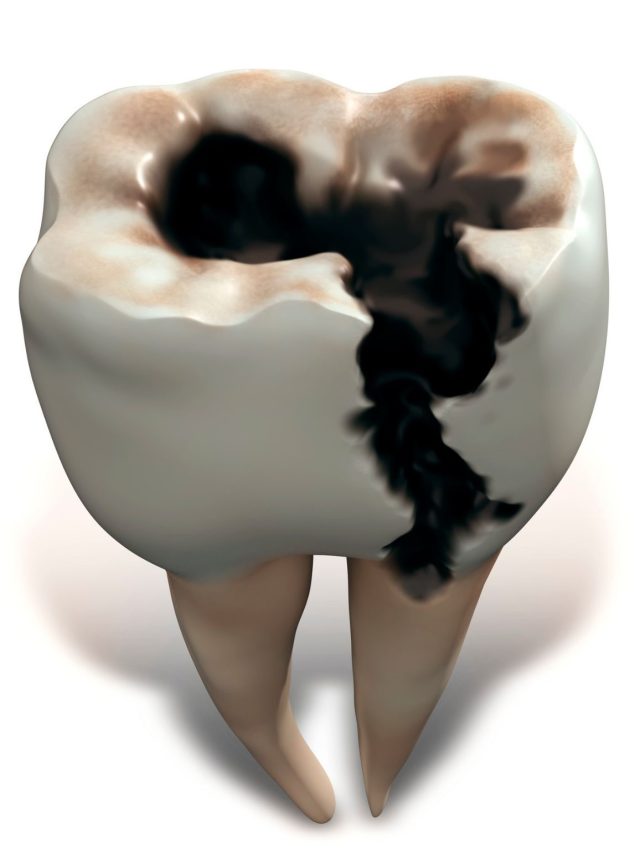How To Treat Decayed Wisdom Tooth? Painfree Solutions

Wisdom teeth, also known as third molars, are the last set of teeth to erupt in the human mouth, typically appearing between the ages of 17 and 25. While they can be a valuable addition to a healthy mouth, wisdom teeth are often problematic due to their late arrival, which can lead to overcrowding, poor positioning, and increased susceptibility to decay and infection. A decayed wisdom tooth can be particularly painful and challenging to address, but there are various pain-free solutions available to alleviate discomfort and restore oral health.
Understanding the Risks of Decayed Wisdom Teeth
Before delving into treatment options, it’s essential to understand the risks associated with decayed wisdom teeth. If left untreated, a decayed wisdom tooth can lead to a range of complications, including:
- Abscesses: Bacterial infections can cause abscesses to form around the tooth, leading to severe pain, swelling, and potentially life-threatening consequences if left untreated.
- Cysts and tumors: Decayed wisdom teeth can lead to the formation of cysts or tumors, which can damage surrounding teeth and bone tissue.
- Periodontal disease: Bacteria from a decayed wisdom tooth can spread to other teeth, causing periodontal disease and potentially leading to tooth loss.
- Sinus infections: In rare cases, a decayed wisdom tooth can cause sinus infections, particularly if the tooth is located near the sinus cavity.
Pain-Free Solutions for Treating Decayed Wisdom Teeth
Fortunately, there are several pain-free solutions available to treat decayed wisdom teeth, including:
- Tooth extraction: In many cases, the best course of action is to remove the decayed wisdom tooth to prevent further complications. Modern tooth extraction procedures are relatively painless, and patients can opt for sedation dentistry to minimize discomfort.
- Root canal therapy: If the decay is limited to the pulp of the tooth, a root canal may be a viable option. This procedure involves removing the infected pulp and filling the tooth with a special material to prevent further decay.
- Crown or filling: If the decay is minor, a crown or filling may be sufficient to restore the tooth. However, this option is often not feasible for wisdom teeth due to their location and potential for overcrowding.
- Dental implants: In some cases, a dental implant may be used to replace a missing wisdom tooth, particularly if the surrounding teeth are healthy and the patient desires a more permanent solution.
Key Considerations for Pain-Free Treatment
To ensure pain-free treatment, consider the following:
- Choose an experienced dentist: Select a dentist with extensive experience in treating wisdom teeth and decayed molars.
- Opt for sedation dentistry: Sedation dentistry can help minimize discomfort and anxiety during the procedure.
- Discuss anesthesia options: Talk to your dentist about anesthesia options, such as local anesthesia or conscious sedation, to ensure you’re comfortable during the procedure.
- Follow post-operative instructions: Carefully follow your dentist’s instructions for post-operative care to minimize the risk of complications and promote a smooth recovery.
Frequently Asked Questions
What are the symptoms of a decayed wisdom tooth?
+Common symptoms of a decayed wisdom tooth include toothache, swelling, bad breath, and difficulty swallowing. If you're experiencing any of these symptoms, it's essential to seek dental attention promptly.
Can a decayed wisdom tooth be treated with a filling or crown?
+While it's possible to treat a decayed wisdom tooth with a filling or crown, this option is often not feasible due to the tooth's location and potential for overcrowding. A dentist will assess the tooth's condition and recommend the best course of treatment.
How long does it take to recover from wisdom tooth extraction?
+Recovery time for wisdom tooth extraction varies depending on the individual and the complexity of the procedure. Generally, patients can expect to recover within a few days to a week, with some discomfort and swelling possible during this time.
Conclusion
A decayed wisdom tooth can be a painful and challenging issue to address, but with the right treatment options and a qualified dentist, patients can alleviate discomfort and restore their oral health. By prioritizing pain-free solutions and discussing anesthesia options, individuals can ensure a successful outcome and minimize the risk of complications. Remember to choose an experienced dentist and follow post-operative instructions carefully to promote a smooth recovery and optimal oral health.
